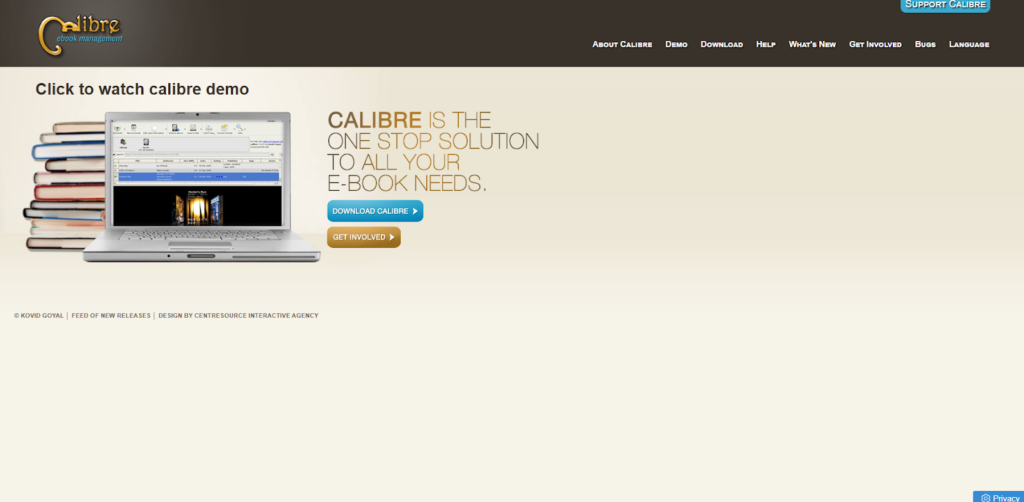Is Calibre Safe?
Laura Martisiute
Reading time: 4 minutes

Table of Contents
If you use or plan to use Calibre, you need to know: Is Calibre safe?
Below, we explain whether Calibre is:
- Safe to use.
- Good for privacy.
We also look at some steps you can take to improve both your safety and privacy when using this online service.
What Is Calibre?
Calibre is a free and open-source e-book management software.
It’s designed for organizing, managing, and converting e-books in various formats. Users can organize their e-books into a library, which can be sorted, searched, and categorized based on metadata such as title, author, publisher, and tags.

Calibre lets users convert e-books into formats like EPUB, MOBI, PDF, and others. This is particularly useful for those who want to read e-books on different devices that support different formats.
Calibre also supports synchronizing e-books with e-book readers and mobile devices, meaning users can manage and access their e-book collection across multiple devices.
Calibre includes basic editing capabilities for e-books. For example, users can change metadata and table of contents and perform some formatting adjustments.
Is Calibre Safe?
Calibre is generally considered safe to use as long as users download it from its official website (https://calibre-ebook.com/). This ensures they get unmodified software without any potential risks from third-party sources.
Calibre is open-source software with a large community of users and developers contributing to its development and security.
It is unlikely for a user to inadvertently download malware while using Calibre due to its infrastructure, according to informed users/developers. All e-books are downloaded and opened within contained sandboxes, which prevent any potential malware from escaping and infecting the user’s device.
The security company UpGuard gives Calibre a security score of 761 out of 950. Among the concerns listed are:
- The website does not redirect to HTTPS.
- Secure cookies aren’t used.
- Server information headers are exposed.
- No valid Content Security Policy has been implemented.
- HttpOnly cookies aren’t used.
No significant data breaches related to Calibre have been reported as of this writing.
Is Calibre Private?
Depends on your definition of “private.”
Calibre is primarily a local e-book management tool. It operates on users’ personal computers and does not inherently involve online services or cloud storage unless users choose to use those features.
For example, Calibre allows users to edit metadata (like titles, authors, and covers) for e-books; this metadata is stored locally unless users opt to share it with online services. When converting e-books, Calibre performs operations locally on users’ computers, ensuring that sensitive content remains private.
There are some risks related to plugins, which can connect to online services for things like fetching metadata or syncing with e-book readers. The plugins and the services they connect to will come with their own individual privacy concerns (and users should be wary as a result).
Calibre does not have a privacy policy, but information about how data is collected and used is available. According to its Usage Statistics page, each user is assigned a randomly generated ID upon signing up, and only that ID is ever stored on Calibre’s servers.

As of this writing, Calibre’s privacy policy has not been reviewed by review sites like Terms of Service; Didn’t Read or the Common Sense Privacy Project.
How to Improve Your Safety and Privacy On Calibre
Follow the steps below for a more private and secure experience on Calibre.
- Use Calibre locally. Keep your e-book library and operations within your computer’s local environment. If you are concerned about privacy, avoid using Calibre’s online features or syncing with cloud services.
- Manage metadata carefully. Review and edit metadata manually when adding e-books to Calibre to avoid sharing unnecessary personal information in file metadata.
- Turn off automatic updates. To control data collection and privacy implications, consider turning off automatic updates in Calibre and manually reviewing updates before installing them.
- Control plugins. Install plugins selectively from trusted sources and review permissions and privacy policies associated with each plugin to minimize privacy risks.
- Encrypt your library. Protect your library file by enabling encryption with a password using Calibre’s built-in encryption feature.
- Review network settings. Configure network settings in Calibre to minimize data sharing and ensure secure connections, especially if using online features or external services.
- Regularly review settings. Periodically review Calibre’s settings and preferences to align them with your privacy preferences, adjusting metadata management, network access, and synchronization settings as needed.
Our privacy advisors:
- Continuously find and remove your sensitive data online
- Stop companies from selling your data – all year long
- Have removed 35M+ records
of personal data from the web
Save 10% on any individual and
family privacy plan
with code: BLOG10
news?
Don’t have the time?
DeleteMe is our premium privacy service that removes you from more than 750 data brokers like Whitepages, Spokeo, BeenVerified, plus many more.
Save 10% on DeleteMe when you use the code BLOG10.
















